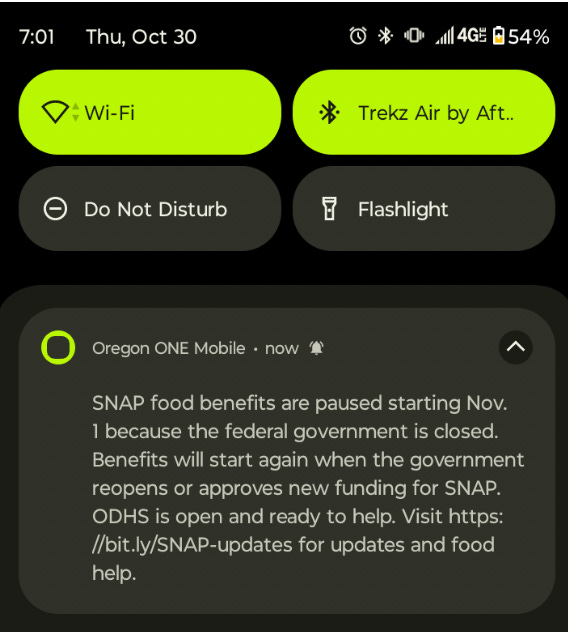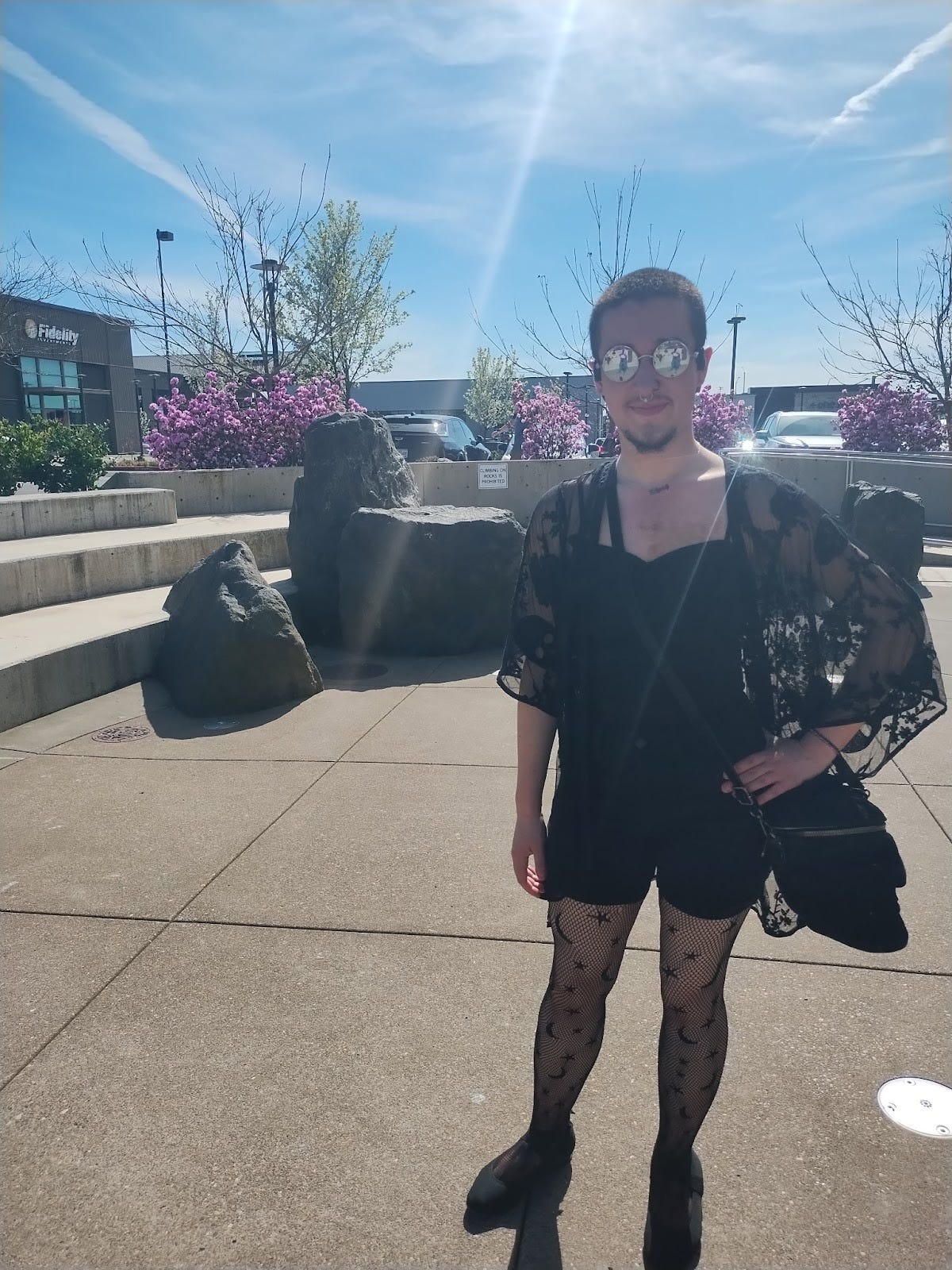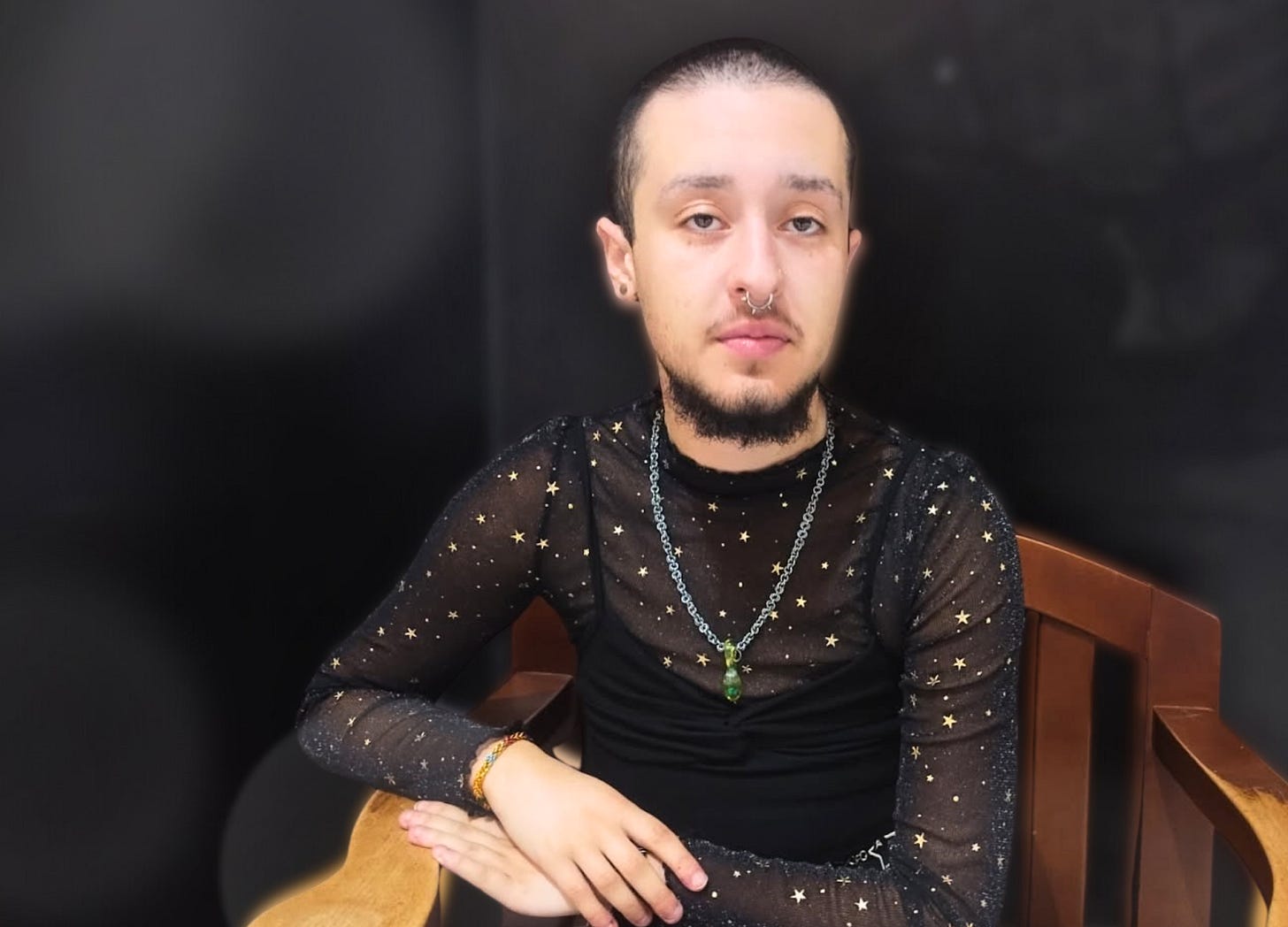I'm Transgender. I'm Autistic. And Trump's SNAP Chaos Is Frightening
I am one of the nearly 2.1 million LGBTQ adults in the U.S who rely on America’s Supplemental Nutrition Assistance Program.
By Asherah Barton, They/Them
In July 2022, when I was 18, I was forced to come out as transgender.
I remember the car ride through Oregon, back from the DMV, where my state ID had my deadname and the wrong gender marker on it. My mom started interrogating me when I mentioned offhandedly that I didn’t want to have kids.
“Are you gay? Bi?” she pressed me.
I shook my head no.
“No? Well, then what the hell are you?”
My mom kept questioning me until I told her I was trans. I didn’t want to come out to her. I knew her beliefs as an ex-Catholic, and I had already heard her misgendering her trans coworker and had even found a transphobic book, “Irreversible Damage,” on the kitchen counter.
She dismissed me. She told me it was a phase. When I started using my chosen name publicly, she told me she would never call me by it. Even now, after two years on hormones and my dual top surgery and hysterectomy in September, I’m still saved in her phone as my deadname and she doesn’t use my pronouns.
Since then, life has been hard. I moved out of my mom’s house to a suburb of Portland. I needed space to exist without constant tension.
On top of the familial estrangement, maintaining work has been tough. For a while, I had a seasonal job at a local grocery store, something stable enough to cover rent and bills but not a long-term contract. I worked hard, often taking extra shifts and covering for others, hoping to be kept on. But on Christmas Eve of last year, I got the call that my contract wouldn’t be renewed. It wasn’t about performance, they said, the store just “didn’t have room in the budget” to keep the seasonal hires. It felt like the ground had fallen out from under me.
I needed help, so I applied for SNAP in February and started receiving it the following month.
I am part of the 42 million Americans and the nearly 2.1 million LGBTQ adults in the U.S. who rely on SNAP, the federal safety net that helps low-income Americans like me afford the food they need to stay healthy and independent. I’m also one of the 10% of younger recipients with a physical or neurological disability, and one of the nearly 3 million 18‑24 year olds who need it to afford food.
When I was on it, SNAP helped me breathe a bit easier.
But all of that changed on Oct. 30, when I got the notification on my phone: “SNAP benefits are paused starting Nov. 1 because the federal government is closed.”
With the holidays approaching and the weather getting colder, this feels like the worst time to lose my stability. Since the Oct. 30 notification, whether I am going to receive these benefits is still so unclear. Earlier this week, Trump said half of the benefits would be issued. Then, early on Friday, it was reported that we would get them after a federal judge ordered the administration to issue full payments immediately.
While I did get my benefits on Nov 7, I saw headlines later that evening saying that the Supreme Court granted an emergency appeal by the Trump administration to temporarily block the court order for full SNAP funding during the shutdown. So does this mean I’ll lose the benefits next month?
The past few weeks have been so stressful, uncertain and confusing. It feels like the government is playing chess with my ability to afford food.
Before I got my benefits, I had $77 from picking up bottles from gas stations and recycling containers that weren’t too sticky to clean. I have a tally on the notes app on my phone of how many I collect, but it was not enough for the food I need.
As an autistic person living in a residency with rotating caregivers, I’m grateful that some of them help with bulk trips to Costco. But they can’t cover everything. My independence, my physical and mental health and my ability to live safely in my own body all suddenly felt more fragile than ever before.
Every month without those benefits means $187 less for me to spend on groceries. It means giving up my favorite protein bars and starting to buy in bulk to save money.
I thought about reaching out to my parents for help, but I suspected they will use their financial assistance to reopen the conversation about my trans identity, which they could use as a form of debt if I decide to sever ties with them.
For me, SNAP benefits are more than being able to afford food. They allow me to buy meals that keep me healthy and don’t trigger my eating disorder. I’ve struggled with Avoidant/Restrictive Food Intake Disorder from a very young age, which makes it hard to eat anything unfamiliar or unsafe.
Without receiving SNAP, I wouldn’t be able to buy the foods that help me live. Just $187 a month may not sound like much, but for LGBTQ young adults like myself—many of whom are estranged from family members and/or living with disabilities—it is a key element to our survival.
For the millions of people on benefits, the uncertainty the Trump Administration has brought us is the last thing we need. For the hungry children, for the parents struggling to put food on the table, and for those like me who are searching tirelessly for a job and working hard, we need clear and consistent support. Not a chaotic and confusing back and forth.
I’m not lazy, I’m not doing this for my own benefit, nor to cheat the system. Being an autistic, transgender and low-income young adult means navigating a triple whammy.
As many as 85% of college-educated autistic adults are unemployed or underemployed. At the same time, transgender workers experience unemployment at twice the national rate and are frequently passed over for promotions or fired through no fault of their own.
This week, I was terrified of what the uncertainty meant. Is the eating disorder that I’ve lived with since early childhood going to get worse again now that I have to go to food banks to get meals that I may not be comfortable eating? Will I have benefits over the holidays? What will Trump do next?
For those reading this who don’t have to think about where their next meal will come from and when, I would like you to know that these funding cuts are not merely abstract numbers. For myself, for other young LGBTQ adults, and for disabled people of any age, they are empty fridges. They are anxious thoughts before every meal. They are fears of what will come next. November is now here, and I feel more scared. I am worried not just for myself, but for the millions of LGBTQ and disabled people like me who rely on this lifeline to eat and survive in a world that often feels unsafe.
Uncloseted Media reached out to Asherah’s mom for comment but she did not respond.
Sam Donndelinger assisted with the writing and reporting in this story.
If objective, nonpartisan, rigorous, LGBTQ-focused journalism is important to you, please consider making a tax-deductible donation through our fiscal sponsor, Resource Impact, by clicking this button:







As a 69 year old disabled retired LGB+TQIA2S woman I also depend on SNAP and it's partner HEAP to live in upstate NY. I live in subsidized housing and a lot of us are going nutz trying to figure out how we will survive this soap opera
Dear Asherah, thank you for this gift of vulnerability. I hope this breaks through to someone (like your parents) that really needed to hear your perspective. Things will get better. Stay strong. You are loved.